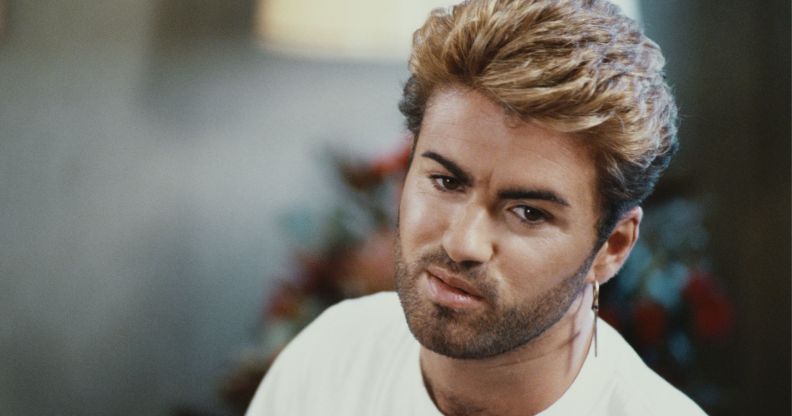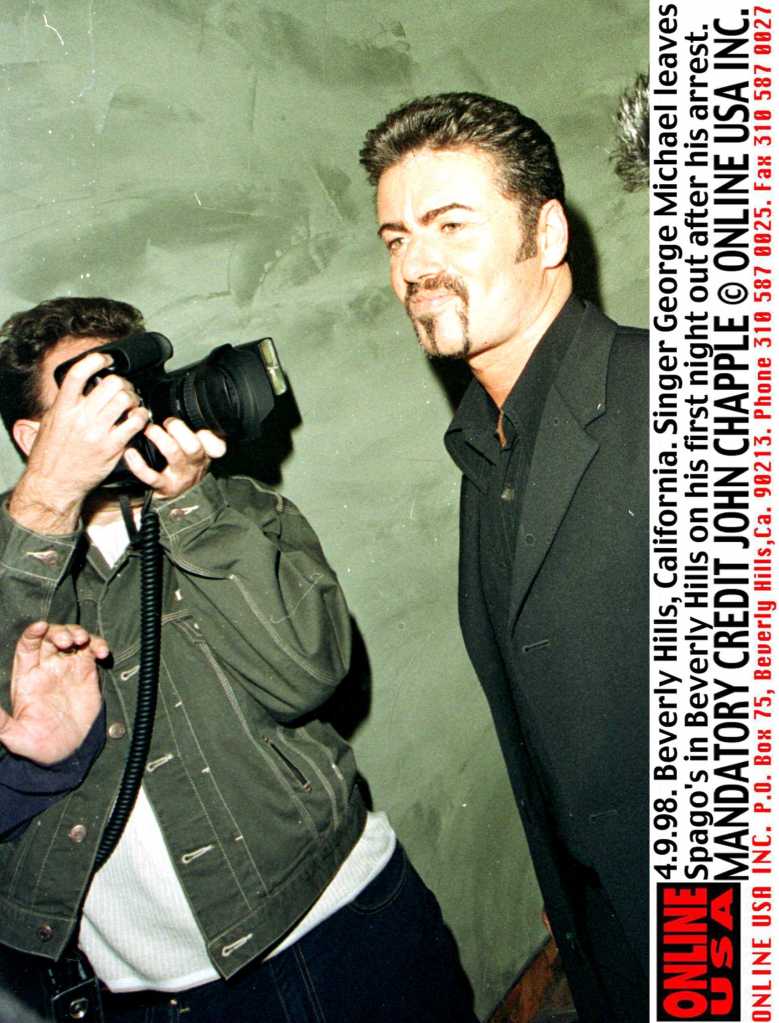George Michael: Outed is a damning reminder of how the British press betrays LGBTQ+ people

Five reasons George Michae’s RNR Hall of Fame induction is well overdue (Getty/Michael Putland)
Channel 4’s new documentary lays bare the grim attitudes of the British press towards gay people in the ‘90s – and reveals that nothing much has changed since pop icon George Michael was outed.
Across two hours, George Michael: Outed explores in great detail how the Wham! singer was treated by the ruthless tabloids following his infamous 1998 arrest for engaging in a “lewd act” in a public bathroom in Beverly Hills, and how the aftermath led to him coming out.
The film paints a gut-wrenching picture of the intrusion, with journalists scurrying for a scoop on George’s sexuality and HIV status. But it also leaves a damning question: are things that much better today?
Michael Ogden, who directed the series, spent weeks trawling through newspaper archives looking at headlines dedicated to outing gay people in the ‘80s and ‘90s, including George himself.
“It was really fascinating, because the language is really horrible and the way it’s written is really horrible, and it’s really judgmental,” Ogden tells PinkNews. “And it’s all because George got his d**k out in a toilet. I thought that was ridiculous.”
Speaking to other gay men who were outed at the time, including former conservative MP Harvey Proctor and former RAF medical officer Dr Andrew Hartle, Ogden says the “trauma” caused by the tabloids was “palpable”.
As part of the documentary, Ogden also spoke to some of the journalists chasing the headlines at the time, including Neil Wallis, former deputy editor at The Sun, and Stuart White, former US editor at the News of the World.
“The attitudes towards gay people in the ‘80s, particularly around HIV and AIDS, were pretty violent”
In one segment, Wallis explains why he thought the hounding of George following the toilet incident was justifiable, suggesting that his hidden sexuality and sexual behaviour were a tale of “hypocrisy”.
“Neil Wallis… his view is just… it’s a scandal about people not being honest,” Ogden says, explaining how the journalist saw George’s story as any other heterosexual celebrity sex scandal.
“My argument was that it’s very different, because the attitudes towards gay people in the ‘80s, particularly around HIV and AIDS, were pretty violent,” Ogden says. “I imagined being gay then it probably could have felt like you were at war because your very being is being questioned.”
The documentary expertly explains why George’s forced coming out and the moral panic over AIDS – which many tabloids dubbed a “gay plague” – are intrinsically linked.
“It’s about the language used, isn’t it? Because it’s all about shame. And the language about how being gay is seen as a shameful act. That was always there with the AIDS crisis, it was a moral judgement made against gay people,” Ogden says.
Newspapers described George as being “plagued by rumours” regarding his sexuality, and insisted he simply come out. All the while, those same papers were whipping up hatred and stigma against openly gay men, insisting the community was to blame for the AIDS epidemic.
“The links are often related to George because he was hugely famous in the ‘80s at a time when the crisis was at its peak,” Ogden explains, noting also that George’s partner in the early ‘90s, Anselmo Feleppa, died due to AIDS-related complications in 1993.
“He was a pop star who was loved by teenage girls, you know? The idea that he could come out as a gay man, with all that pressure around him, and this sort of fever pitch of the AIDS language and abuse that was coming from the press would have been impossible.”

While the attitudes of the British press at the time were irrefutably vile, Ogden wanted to make it clear that the anti-LGBTQ+ rhetoric in the media isn’t a thing of the past.
At the very end of the documentary, George Michael’s “Freedom” begins to play. The documentary flashes forward to reels of recent headlines about attacks on queer people, and stars like Rebel Wilson being outed by the press.
“You always do always consider when you’re doing something like this, which is looking back, what is the relevance now? The relevance is that nothing’s changed,” Ogden says.
He and his team were editing the documentary during the height of last year’s Tory leadership contest, which swiftly became an ugly struggle to see which candidate and media outlets could punch down harder against trans people.
“Our film is not a film about trans lives, but it’s a film about all queer lives, in a way”
“Throughout that time there was all this b*****t about trans lives – and I’m not going to say the trans debate, because it’s not a f*****g debate. That was constantly in the air,” Ogden says.
“Our film is not a film about trans lives, but it’s a film about all queer lives, in a way. We were cognisant of that, and wanted to make sure that you didn’t feel this was just history, and that actually, this is a lesson for now.
“We can never go back to that situation. Sadly, you look at what’s happening in the press about trans lives. You look at what’s happening with the potential SNP leader in Scotland who didn’t agree with gay marriage. Our freedoms are not easily won and they’re fragile.”
George Michael: Outed isn’t just a reminder of harmful queerphobia, it’s also a love letter to how George subverted the gay shame narrative levied against him.
Through speaking to queer music legends like Frankie Goes To Hollywood’s Holly Johnson, DJ Fat Tony, Will Young and Olly Alexander, as well as George’s then-partner Kenny Goss and cousin Andros Georgiou, Ogeden highlights how the “Careless Whisper” singer drove the gay liberation to new heights.
Outrunning the press as they fought to reveal his sexuality, George appeared on CNN to tell the world that he was a gay man, that he was proud, and that he would never allow himself to be humiliated for it.
“I don’t feel any shame whatsoever,” he said unapologetically. “And neither do I think I should.”
George Michael: Outed airs on Channel 4 on Monday 6 and Tuesday 7 March at 9pm.
How did this story make you feel?

